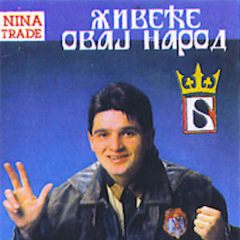-
Posts
372 -
Joined
-
Last visited
Reputation
960 Heroic
About Papa Liam
- Birthday December 3
Contact Methods
-
Discord
Liam#7649
-
Minecraft Username
papa_liam
Profile Information
-
Gender
Male
-
Location
Quebec
Character Profile
-
Character Name
Elibar'indor
-
Character Race
Pretentious Elf Scholar
Recent Profile Visitors
28352 profile views
-
[!] This recruitment poster is plastered in the halls of the Northern Geographic Society. However, it is plausible that others may find loose copies. Notice for the Recruitment of Scholars on a project within the Northern Geographical Society Dr. Elibar'Indor Hilea of the Northern Geographical Society is recruiting collaborators and/or research assistants for a research project covering the supposed enlightenment of Canonist, human societies from 1571 to the present. The intention of this longitudinal archival study is meant to track historical themes in majority human and Canonist nations which imply the transition from conservative tradition to liberal "enlightenment." Proper findings should be able to conclude whether or not there has been a consistent transition away from traditional human values to a more liberalized society, and if such a transition is universal among human Canonist nations. The null hypothesis is that such an enlightenment movement does exist. Findings which negate the hypothesis that an enlightenment movement does exist should have causal reasoning as to why human nations have resisted such an enlightenment. The following trends would support the hypothesis: Transition towards secular legal institutions Power entrusted in democratic institutions Tolerance of magic, non-human residency, and behavior previously considered heretical Increased diplomatic communications with non-human societies Public trust in scientific institutions Longevity of contemporary human societies Recruitment to this project is open to current NGS scholars and external applicants. Applicants are expected to have some familiarity in human history, political theory, or philosophy. Previous publications or research experiences are an asset. Those recruited to the project will assist Dr. Hilea in finding archival data to support or negate the notion that there has been a transition towards the aforementioned values. Research assistants will be expected to peruse old documents, including legislative and cultural texts, and to locate discursive patterns which discuss the themes above. After a complete compilation of documents have been collected and summarized, the research team will then begin identifying historical patterns in human law and culture. Multiple papers may be published as a result of this project. Research assistants will be credited accordingly. Should applicants assist in the drafting of publications, they will be credited as co-authors alongside Dr. Hilea, in order of contributions to the project. Members of the research team will be privy to testimony and letters of recommendation to advance their careers within the NGS or elsewhere. Those interested should contact Dr. Hilea directly.
-
[!] This missive is posted around academic institutions and public spaces of wealthier, more affluent neighborhoods. SEARCHING FOR BENEFACTORS: Creating a Fellowship Fund for Aspiring Doctoral Students THE CONGRESS OF SCHOLARS 87 S.E. To the academic community and philanthropists of Almaris. . . Over the course of the last twelve years, the Congress of Scholars has successfully created the framework for an international academic organization, tasked with standardizing and networking the scholars of Almaris. With affiliated scholars across three accredited institutions, our hope is to foster academic excellency in all fields of education, and to train budding scholars in research methodology. The function and responsibility most noteworthy to the Congress of Scholars is the doctoral accreditation process, as stipulated in the Charter. This process is reserved for the brightest students who have demonstrated excellence, and wish to dedicate their lives to academic research. Doctoral students pursue degrees in their preferred academic discipline under the mentorship of an accomplished scholar, ultimately writing and defending their thesis to the academic community. Even with several active, accredited academics in our organization (with three other students currently pursuing their doctoral degree), the Congress of Scholars wishes to add more budding researchers to our roster of accredited doctors. Through the implementation of a fellowship -- yet to be named -- the Congress may award a sum of mina to our brightest minds, supporting them financially as they dedicate their lives to academic research. The fellowship is also a mark of prestige, awarded only to rising academics who have demonstrated their research interests in a specific area, and have a proficient understanding of writing conventions, research methodology, and their respective academic discipline. The intention of the fellowship is to provide a financial incentive to the greatest researchers in Almaris, regardless of race, religion, or national origin. We are asking for financial benefactors to fund this fellowship, to foster the birth of a new generation of academics. The number of fellowships and grant size will be determined by how much mina is donated. We are particularly searching for donations from the following bodies: Academic institutions Governments Philanthropists Businesses The fellowship will fund the studies of our brightest student(s) studying in any academic subject: Anthropology History Economics Theology & Religious Studies Geology Philosophy Mathematics And other subjects. Scholars who wish to pursue independent studies in a field with relatively little published research will also be sought. Benefactors receive the following benefits: The honor of contributing to the excellency of academic research in Almaris Access to Congress of Scholars networking and social events A seat on the fellowship's board, and subsequently, a say in the eventual name of the fellowship If you are interested in contributing to the academic advancement of Almaris, please contact Dr. Elibar'Indor, Chair of the Congress of Scholars. (Liam#7649) --- Scientia in Unitate
-
The Comprehensive Guide to Academic Research By Dr. Elibar’Indor Hilea Northern Geographic Society Press 81 S.E. Almaris is currently in the genesis of an academic renaissance, a rebirth in scholarly thinking and infrastructure which has redefined the livelihoods of those inclined to conduct academic research. With the recent birth and revival of multiple Almarian academic institutions – the Northern Geographic Society, the Vortician Society of Scholars & Artisans, the Arcanic Celian Academy, and the Vienne Institute – the second era marks a transition towards the formalization of academia and an increase in those pursuing scholarly endeavors. I write the preamble to this guide as the Chairman and founder of the Congress of Scholars, acknowledging that our recent success has been attributed to the academic works of our accredited doctoral members. With the recent influx of doctoral students and submissions for the Celestine Herbert Award, I have taken it upon myself to write a basic guide to conduct academic writing in an effort to demystify research. This guide is available to the common layman, but is intended for use by doctoral students in the Congress of Scholars. Objectives of Academic Research: Structure of Research Articles: Research Methodologies:
-
ACCEPTING DOCTORAL STUDENTS The Congress of Scholars 81 S.E. The Congress of Scholars is currently accepting candidates for doctoral research in history, economics, anthropology, mathematics, literature, linguistics, sociology and any potential academic field. Per the Congress of Scholars' prior missives, the purpose of doctoral research is to commit one's life to academia, pushing the boundaries of descendent knowledge past its current limits. Doctoral training prepares one to become a professional researcher, writer, investigator and teacher in their selected field. Only truly gifted individuals will excel in such an environment; doctoral training involves reading academic literature and writing a rigorous thesis answering a niche research question. If pushing the boundaries of knowledge and synthesizing novel research appeals to you, then consider becoming a doctoral candidate. Doctoral status grants one the agency to facilitate their own academic research through the Congress, eligibility for Congressional research funding, and the ability to organize events within the Congress. Successful candidates also receive the title of "Dr." for life. Candidates are expected to reach out to one of our currently accredited doctors to act as a supervisor who will guide them through the doctoral process. As a result, there is no standardized application for doctoral prospects. The decision to accept a candidate is left to the discretion of the potential supervisor, as they are not obligated to accept any particular applicant as their student. Doctors in the Congress of Scholars excel in the fields of history, anthropology, political science, economics, biology and research methodology. If your academic and research interests are beyond the scope of the Congress' capacity, you may be suited for the independent accreditation pathway (read below). Our currently accredited doctors are: Dr. Edward Napier of the Northern Geographic Society; Naturalism, Adunian History Dr. Elibar'Indor Hilea of the Vortician Society; Economics, Research Methodology Dr. Elizabeth Brae-Wittenbach of the Northern Geographic Society; Political Science, Anthropology Dr. Elizaveta Ulyana of the Northern Geographic Society; Biology Dr. Renae Athri'onn of the Celian Academy; Arcanic Studies Dr. Viction Trito of the Vortician Society; Almarian History, Cultural Studies Doctoral candidates may pursue their training under the auspice of their supervisor's academic institution. Our currently accredited institutions are: Northern Geographic Society, headquartered in Karosgrad Vortician Society of Scholars and Artisans, headquartered in Talon's Port Arcanic Celian Academy, headquartered in Celia'nor Alternatively, candidates who demonstrate academic and research proficiency may pursue independent doctoral studies. This pathway is well suited for those investigating academic disciplines outside the purview of the Congress' currently accredited supervisors. Those who pursue independent candidacy will still have oversight from the Congress, but will not be given academic instruction or guidance; rather, the Congress will simply assure that the candidate's research is of a high caliber. Those interested in independent doctoral studies should contact Dr. Elibar'Indor Hilea, the Chair of the Congress of Scholars, directly. (Liam#7649) Per the Charter of the Congress of Scholars, candidates are expected to accquire the following skills upon receiving their doctoral degree: Mastery of the theoretical knowledge in their selected academic discipline Proficiency in research methodology appropriate to the candidate's discipline Proficiency in academic writing Production of several small academic articles, per the discretion of the candidate's supervisor Production of a proper doctoral thesis, to be defended before a committee of scholars Those with further inquiries should reach out to Chairman Dr. Elibar'Indor (Liam#7649).
-
((Forum formatting is not optimal for transferring google docs. You can access the original document here.)) Charter of the Congress of Scholars Detailing the Mission, Function and Duties of the Congress of Scholars “Scientia in Unitate” 80 S.E. Preamble The Congress of Scholars is an international forum of scholars which crosses institutional barriers. The board is composed of institutional leaders in academia who organize academic events, programs, and standards to formalize academics and ensure that a new generation of scholars can more effectively share their works and learn from one another. The Congress is not a single university, college, or academic society; it is a neutral arbiter of academic affairs with a mandate to create a community of scholars. The Second Age has marked a dramatic shift in contemporary global cultural attitudes. Following the departure from Arcas, the denizens of Almaris seem to have experienced a scholarly renaissance. The expansion of formal academic institutions in recent decades has created a hospitable space for those who seek to synthesize new knowledge merely for knowledge’s sake. There now exists the capacity to facilitate an international community of scholars who are motivated by nothing more than the accumulation, creation, and publication of knowledge; albeit, a small community. Nonetheless, an apparently small size of dedicated scholars in Almaris is the precise reason that a universal forum should exist to create a more intimate environment for academics who wish to see academia blossom. Mission Statement The mandate of the Congress of Scholars is to foster the next generation of researchers, academics and scholars. The Congress has three primary objectives; to facilitate networking events between scholars of all affiliations, to accredit degree-granting academic institutions, and formalize the process for awarding doctoral credentials. These objectives are not meant to hinder the activities of academic institutions – rather, they are meant to provide support for the next generation of scholars. The motto of the Congress shall be “Scientia in Unitate,” the Flexian phrase for “Knowledge in Unity.” This motto summarizes the benefits of fostering collaboration and cooperation between scholars in different institutions and disciplines, and emphasizes that working together yields mutually beneficial results for all parties. Governance The bureaucracy of the Congress exists to organize academic activities and meetings. The Congressional board is made up of one representative from each accredited institution, as well as one Chairman appointed by a majority vote to facilitate congressional activities in a neutral fashion. The board represents the institutional interests of all academic guilds and may vote to make institutional changes to the Congress, binding to all accredited institutions. Board Members are appointed by the chief executive authority of their respective institution, and the chief executive authority reserves the right to appoint themselves as a Board Member. The Chair is elected by a majority vote of the current Board Members. The Chair may be a scholar associated with an academic institution, but may not be the institution’s chief executive authority. The Chair serves until departure or removal by a majority vote of the Congress. Board Members reserves the subsequent powers: To bring forth any motions to the board regarding the activities of the Congress of Scholars, to vote on any motions presented by other members, and to call for a meeting of the board when they deem fit. The Chair reserves the subsequent powers: To facilitate the agenda of board meetings, to moderate discussions during board meetings, to record the votes on any presented motions, to represent the general interests of the Congress of Scholars to any third party, and to process applications for institutional accreditation, as detailed by the Charter. Accreditation of Academic Institutions Accreditation of academic institutions is intended to identify those institutions which are active members in the scholarly community. Accreditation is also critical to participation with the Congress, as accredited institutions will appoint a representative to the board. The credentials are designed to be unrestrictive to ensure that all academic institutions, no matter their size, have access to the same opportunities and resources. Accredited institutions will be eligible to receive any conditional funding possessed by the Congress of Scholars. Conditional funding will not discriminate between institutions. Institutions must meet three basic requirements to attain and maintain accreditation: The establishment of a permanent, physical facility. The institution in question must have at least one identifiable campus. Membership of one or more doctoral degree-holders. At least one member of the institution must possess a doctoral degree as verified by the Congress of Scholars. Continued dedication to academic research. The institution in question must maintain a public academic presence. Doctoral Accreditation One useful function of the Congress is verifying the status of degree-holding scholars who have undergone the most rigorous academic training. Those who hold doctoral degrees have not only mastered their subject area, but have also created a novel and substantive piece of academic literature which has made an original contribution to their field. The doctorate signifies that the individual is capable of conducting original research and incorporating prior literature into their works. The doctoral degree certifies professors and researchers throughout Almaris as full members of the Congress. The Congress of Scholars accredits only the academic doctoral degree. Medicinal degrees, professional degrees, craftsman certifications, magical certifications and academic degrees of less rigor fall to the discretion of individual institutions. Those who receive a doctoral degree reserve the following rights; Lifetime membership in the Congress of Scholars, lest expunged due to revealed plagiarism or academic dishonesty, The title of “Doctor” (Dr.) for life, And the right to mentor doctoral candidates at their discretion. Doctoral candidates are expected to possess the following skills upon receiving their doctorate; Mastery of the theories and core literature within their academic discipline, Proficient understanding of research methodology appropriate to their discipline, Critical thinking and writing abilities to incorporate into their academic work, And the production of an at-length academic thesis which makes a substantial contribution to their field. The process of granting doctoral degrees is as follows; Doctoral candidates must identify a current doctorate to act as their mentor and supervisor. Current doctorates maintain full agency in their decision to accept or reject new doctoral candidates. It is expected that doctoral candidates will receive rigorous academic training from their mentors during the “training phase.” This includes educating the mentee on research methodology, proper academic literacy skills and core concepts of the discipline. During the “training phase,” the specific aspects of academic training fall upon the individual mentor and their affiliated academic institution. However, it is generally expected that all doctoral candidates master the above skill sets and produce smaller academic publications to demonstrate their progression. When the candidate has completed training, they will be expected to complete their doctoral thesis/dissertation. This is a lengthy piece of academic literature which makes a significant contribution to their field. Dissertations must present a novel research question, a clear methodology to address this question, and any results yielded from their research. Although their prior publications may not make use of proper citations, the dissertation is expected to employ an acceptable citation style (such as VSSA or NGSC). Upon completion, the student may submit their thesis to their supervisor. The supervisor is then tasked with creating a thesis committee of three degree-holding scholars to critique and judge the thesis. The supervisor may suffice as one committee member, and committee members may hail from the affiliated institution or others. The thesis must come either to the conclusion to accept the thesis, at which point the doctoral candidate receives their doctoral degree, or to reject the thesis, wherein the candidate will have the chance to make sufficient edits and resubmit their dissertation at a later date. Those who hold a doctoral degree may opt to omit themselves of institutional membership, instead acting as “independent scholars.” Independent scholars maintain the ability to mentor students and participate in Congressional events, but are not represented on the board. The Congress of Scholars verifies the following types of doctoral degrees, all of whom would receive the title of “Doctor” (Dr.); PhD, derived from the Flexian philosophiae doctor. Holders of this degree have undergone the doctoral accreditation process in full. EpF, derived from the Flexian ex post facto. These are doctoral degrees of equal status to the PhD, but have been awarded to scholars with sufficient academic publications prior to the establishment of the Congress. Posthumous PhD, awarded as recognition of deceased scholars deemed to have made a significant contribution to their field during life. Awarding of the posthumous doctorates must be brought to the board as a motion. Honorary PhD, awarded as recognition of an individual’s academic contributions outside of the academic world. The honorary PhD cannot be used as appropriate academic credentials. Awarding of the honorary doctorates must be brought to the board as a motion. Networking In-person networking events between scholars are of utmost importance. Correspondence through letters are fruitful in sharing brief theories, but to truly interact with the intellectual work of others, a regular gathering of scholars is most effective. The Congress is responsible for the organization of academic forums wherein scholars are eligible to present influential studies with their peers and meet scholars from other institutions. The Congress may also provide logistical assistance with smaller conferences initiated by other academic institutions or individuals. Participation, of course, is not limited to those with advanced degrees, but simply those who have recently made scholarly contributions to their field. Archival Duties The Congress of Scholars is tasked with proper record-keeping, and may expand its archival functions at the discretion of the board. The Congress will maintain an organized and public record of current and past doctorates. The Congress will maintain an organized and public record of current and past accredited academic institutions. Amendments to the Charter This document may be amended by the following processes; 3/4ths majority vote of Board Members on a proposed motion, or Simple majority vote of a referendum among all current PhD and EpF holders. To amend this document through referendum, 50% of all current doctorates must agree to the proposed measure.
-
The Celestine Herbert Award Sponsored by the Congress of Scholars “Scientia in Unitate” 80 S.E. Award Description The Celestine Herbert Award (CHA) recognizes an individual research publication which has made a significant contribution to scholarly literature in recent years. The award is named after Celestine Herbert, the prophetic anthropologist, ethnographer, explorer and founder of the Northern Geographic Society. Herbert’s publications have always challenged the boundaries and limitations of academic theories and knowledge, making novel contributions to the scholarly world. In the spirit of Celestine Herbert, this award aspires to uphold her legacy by recognizing scholars who publish rigorous, insightful and original research. Submission Criteria The award will be granted under the following conditions; Publications in all academic disciplines are considered for the award. The CHA will be granted once every five Saint’s years, announced at the Congress of Scholar’s regular conventions. The Congress of Scholars will accept submissions of publications on a rolling basis, and reserves the right to recognize a public article as the winner of the award that may not have been submitted directly. Preference will be given to contemporary research which has been published in the last five Saint’s years preceding the granting of the award. If the article has more than one author, the CHA will be awarded to all authors of the publication, provided that all authors made substantial contributions to the article. The CHA Evaluation Committee shall be composed of the Chair of the Congress of Scholars and two appointed adjudicators. No members of the committee shall be eligible for that year’s award. Evaluation Members of the committee may suggest which submissions to evaluate for proper CHA candidacy. Following deliberations, all members of the committee must vote on a single publication to grant the award. Committee members should evaluate submissions on the following criteria; Rigidity: The submissions should present a degree of academic rigor. The publication should present a clear research question, methodology, and results. Submissions should reference prior academic literature to support their findings. Although not required, it would be favorable that studies make use of a proper citation style, such as VSSA or NGSC. Novelty: The article examines a viewpoint or aspect of the research topic that has not been thoroughly examined in prior academic literature. Research presents the original perspectives and findings of the author(s). Inquiry: The publication challenges the current limits of academia or critically examines existing academic literature. Authors should not be afraid to challenge dominant theories in their academic discipline. Note on the CHA’85 The first endowment of the CHA shall take place in 85 S.E. at the Congress of Scholar’s regular conference (details TBA). Submissions for the CHA’85 may be sent to Pro Tem Chair Elibar’Indor. Academic articles may have already been published or may be published specifically as a contender for the CHA. The members of the CHA’85 Evaluation Committee shall be; Dr. Elibar’Indor Hilea, Pro Tem Chairman of the Congress of Scholars Dr. Elizabeth Brae-Wittenbach, Vice President of the Northern Geographic Society Dr. Viction Trito, Grandmaster of the Vortician Society of Scholars and Artisans Signed, Dr. Elibar’Indor Hilea, Pro Tem Chair of the Board
- 1 reply
-
8
-
oh boy should I RP in massive empty settlement #4 or massive empty settlement #9 today?
-
[!] Dr. Indor peruses the flier before sending a missive back to the clan. "To Clan Dezokh-Nur, I am delighted to extend a provisional offer of membership within the Congress of Scholars to your clan. As an umbrella organization for all academic societies in Almaris, we believe that Clan Dezokh-Nur would benefit from mutual collaboration with our fellow member institutions, such as the Northern Geographic Society, the Vortician Society of Scholars and Artisans, the Celian Academy and the University of Vaelya. Your summits sound fairly similar to our own academic conferences. By no doubt, having Clan Dezokh-Nur sit on our board would yield mutual benefits. Please do contact me to discuss further, I can be reached by aviary or in the Karosgrad museum." Best, Dr. Elibar'Indor
-

[Eventline] Almaris Conservationist Society
Papa Liam replied to Xx_BloodStalk_xX's topic in Other Realms
Elibar screams and growls and moans and cries after trying to find this wagon. -
A Study on Modern Numismatics: Polarizing Impacts of Domestic Currencies on Markets in Almaris Dr. Elibar’Indor Hilea Doctor of Political Economy Master of Research for the VSSA & Affiliated Research with the NGS Northern Geographic Society Press Published 79 S.E. ABSTRACT Since the arrival of settlers in Almaris, production of the mina has been stagnant. Prior literature suggests that the Cloud Temple monks have decreased mina production, prompting national treasuries to create domestic currencies in their respective nations. However, the creation of domestic currencies have the potential to create a politically polarized climate in their host nations. This article details the history of numismatics in descendant nations, the economic motivations to transition away from the use of commodity currencies, and the alienating effects of domestic currency reliance. Note that this study uses the VSSA citation style. INTRODUCTION For as long as recorded economic literature spans, it is generally implied that the dominant currency has been the mina. The mina has been a convenient form of trade between individuals since its initial production by Cloud Temple monks. Governments, merchants and consumers alike are thought to have favored the mina as a commodity currency, one which is backed by the inherent value of the materials used in production. No matter the economic state of the realm, actors in the economy did not have to worry about the value of the mina in their bank accounts, as its value was backed by inherent worth; the worth of their coin would not fluctuate, even if the real prices of commodities did. These traits defined the mina by three critical properties: universality, accessibility, and abundance. The mina as a commodity currency thus provides denizens with the ability to use the mina as a means of exchange across nations (universality), the acknowledgement of minae at nearly every banking institution (accessibility), and the sheer amount of mina available in the money supply, as it was produced by a central minting authority rather than individual governments (abundance). The abundance of minae is a trait especially enticing the state treasuries as they would not have to invest materials or labor costs into the production of a domestically minted currency. Exceptions to this rule have existed throughout history, such as the series of Halfling societies which instead opted for trade through barter, but the mina remained the dominant currency in nearly all major descendent societies. However, the arrival to Almaris has been accompanied by a decrease in the amount of mina available to the general public. It may very well be that Almaris is a continent lacking and devoid of the necessary natural minerals used in the production of the mina. Although it is unclear what the physical coin is minted from, other industries have experienced stagnation in natural resources. The eastern Almaris economic crash of the 1860’s was credited to the depletion of precious minerals in the Komnenos mines of Oren (Ana, 1865). The production of jewelry and beauty products which made use of these precious resources became challenging, just as we may assume the production of minae did due to a scarcity in the necessary minerals used in production. Without declassification of the mina production process from the monks, it is impossible to make a definitive deduction, though there is obviously a plausible foundation for correlation. However, the rhetoric of state treasuries implies that the reasons for creating domestic currencies is also tied to politics that are distrustful of foreign societies and currencies. Nonetheless, the scarcity in mina did begin to spur a wave of domestic fiat currencies in Almaris to replace the mina. These currencies differ from minae in that they are minted by a particular government, backed by the monetary authority of the issuer rather than the intrinsic value of the materials used in production. From Haelun’or to Haense to Uruguan, nations have begun the production of fiat currencies to replace the mina, assuming agency of their own economies. The success of these domestic currencies continues to be a topic of discussion and warrants further research, though the political effects remain completely unexamined in current academic literature. Rather, this study intends to analyze the political origins and influences of domestic fiat currencies on their consumers. How can domestic currencies alienate nations from international markets? HISTORY OF DOMESTIC CURRENCIES Early exceptions to the rule of minae dominance included predominantly human examples. On Axios, the Margraviate of Ponce began to issue their own domestic currency, the Silver Pound, produced from their nearby silver mines (Falk, 1634). The Silver Pound was a commodity currency backed by the fluctuating prices of silver, but still represents an exception to the dominance of mina in early societies. More recently, the Imperial Mark was the short-lived currency of the Holy Orenian Empire (Penton, 1836). The Imperial Mint was the first to begin the production of paper bank notes to accompany metallic coins of lower denominations. Initially minted in 1836, the new currency superseded any other domestic currencies minted through the prior edicts of 1765. Nonetheless, Oren had begun to dabble in fiat currencies, creating a means of exchange wherein value was entrusted by the issuer. Almarian examples begin with initiatives from Haelun’or, where the Silver State sought to escape the “crumbling economy of Almaris” through the creation of their own national currency, the Ibar’thilln (An’asul, 58SE). While the creation of an Economic Reform Committee also created a series of guilds tied to particular industries, it also maintained that the Ibar was the only acceptable means of exchange within Haelun’or. Rhetoric used by the Okarir indicates that there are political motivations to shift “towards freedom from the festering greed of our enemies. For Mali'thill do not need their fruit, their produce, their coin to survive, for we are more than capable of thriving with no more than the efforts of the purest of elves” (An’asul, 58SE). The Haelunorian example makes heavy usage of alienating rhetoric, implying that the “crumbling” economy of Almaris is directly related to the universality of the mina. Further, the United Provinces of Dùnrath have recently begun minting their own currencies. The Rathonian currency exists in a peculiar space between commodity and fiat currencies, reliant on both the faith of the issuer as well as the fluctuating prices of metal relative to the Almarian mina (Sutharlainn, 73SE). The Monetary Act of Dunrath implies that the mina is an unstable and illegitimate currency, but does not present rhetoric which directly subjugates foreigners or implies that the declining state of the Almarian economy is the fault of non-Rathonians. Recent introductions of new domestic currencies in the Dwarven economy have also been attributed to a declining age of economic expansion. Though the Kingdom of Urguan had previously used a faulty domestic currency – the Karzul – the Grand Bank has recently issued the Minek as a replacement (Goldhand & Grandaxe, 70SE). The Minek is, decidedly, a fiat currency as the conversion from mina is subject to an exchange rate dictated by the Grand Bank. Nonetheless, the Minek is also attributed to a floundering economy of the “Second Age.” Of course, the most prominent and dominant instance of modern domestic fiat currencies rests with the Hanseti Krawn, similarly attributed to fix economic woes, though does not make use of the fiat currency. Introduced in the early 1800’s, the Krawn originally included bronze, silver and gold denominations. Since the Krawn is backed by the value of minerals as an asset, they retain their value as a means to mitigate inflation (Vyronov, 78SE). Economic downturn is also credited as the reason for reliance on domestic currencies, citing the rapid inflation of the price of mina relative to the Krawn, but also the economic ramifications of recent warfare. Perhaps warfare implies increased government spending on expensive military equipment produced by Hansetian industries, increasing the overall demand (and equilibrium prices) of related goods used in military production. The implication is that the inflation caused by militaristic spending would have an expansionary effect on the demand for certain goods, causing an increase in prices. Nonetheless, Hansetians cite the Krawn as a means to prevent creeping inflation and are increasingly proud of their domestic currency. ISOLATION OF DOMESTIC MARKETS The effects of domestic currency reliance, in all cases, can imply the isolation of various markets that is no longer reminiscent of the mina. Recall the attributes which define that of the mina: accessibility, universality, and abundance. Without banking institutions which accept a standard international currency, access to domestic currencies becomes difficult to those conducting international trade. Commerce suffers as a result of foreign consumers being unable to access their own money. While a Hansetian may spend their Krawn domestically, visiting Dunrath becomes an issue, should they wish to purchase goods using their Krawns. Conversion of the Krawn to Agra at Rathonian banking institutions may not even be possible, let alone the conversion of Agra to mina, should the Hansetian possess only the Krawn (Sutharlainn, 73SE). The same is true of a Rathonian in Karosgrad, or a foreign consumer in any market which makes use of domestic currencies. Thus, national treasuries have sacrificed the universality of their currency for a marginal increase in agency of their domestic markets, forgoing accessibility and universality. The abundance of domestic currencies may vary between nations. The result of this alienation is an economy which becomes increasingly reliant on domestic goods rather than international imports. The degree to which domestic currencies may decrease imports is yet to be examined, but conventional wisdom would suggest that the lack of accessibility and universality could create an isolated domestic economy. This is especially true in economies where the domestic currency is considerably weaker with fewer consumers. However, this may be a desirable effect to some nations. For instance, the Ibar is spurred by distrust of foreign banking institutions, accompanied by the desire to create a more intimate domestic labor market (An’asul, 58SE). Perhaps the Ibar creates an incentive to engage in foreign commerce outside of Haelun’or, leaving Haelunorians to their own devices and creating domestic economic activity that is not reliant on exogenous markets. To others with less centralized economic hubs and more rural populations, the decrease in foreign commerce may have an alienating impact on the domestic markets. Without imports, the economies which have a comparative disadvantage in the production of most goods would suffer, unable to capitalize on their abundant resources in exchange for the imports they so direly need. CONCLUSION Although domestic currencies are almost sure to isolate domestic markets from international commerce, the effects may be viewed as desirable to some economies. For those with a reliable domestic labor force, suitable capital to produce the demanded products, and the political will to detach from international reliance on the mina, the isolation of domestic economies can arguably be viewed as a favorable outcome. Economic analysts should be urged to conduct cost-benefit analyses when minting domestic currencies, and further research should explore quantitative impacts of domestic currencies on imported goods. There exists a potential field of research to explore the rise of domestic currencies and the differences between means of exchange. I have opted to coin a term for the study of currencies (pun intended), dubbed “numismatics.” Rooted in the Flexian word for coin, “nomisma,” I find that numismatics can be a useful field of study for macroeconomists across Almaris, further informing national treasuries and mints of potential economic policies. BIBLIOGRAPHY Ana, J. (1865FE) The Beauty Industry Crash of 1865. Red Rose Industry. ((Link)) Falk. (1634FE) The Silver Pound of Ponce. The Ponce Exchange. ((Link)) Goldhand, H.; Grandaxe, D. (70SE) Urguani Economic Reform. The Grand Bank of Urguan. ((Link)) Penton, H. (1836SE) The Imperial Mint. Ministry of the Treasury. ((Link)) Sutharlainn, D. (73SE) The Monetary Act S.A.73. Grand Governor of the United Provinces of Dunrath’s Office. ((Link)) An’asul, U. (58SE) In Regards to the Economic Reformation of Haelun’or. ((Link)) Vyronov, G. (78SE) Krawn Exchange & New Krawns. Golden Crown Bank. ((Link))






















